589: 2017 Predictions (and 2016 look-back)
12-26-2016

PropertyInvesting.net team
2017 Predictions (and 2016 look-back)
More objective guidance and insights for property investors. Our aim is to help you improve your investment returns, flag key risk areas and stimulate strategic thought so you can position your portfolio to maximize gains, for the thousands of daily visitors to the website and the thousands of people signed up to your Newsletter. This Special Report describes our 2017 Predictions and takes a Look-back Review of our 2016 Predictions for good order.
We start with our view on 2017 property prices in the UK followed by economic criteria. Weve been performing this analysis for the last ten years now. All our previous predictions can be reviewed on the website in our Special Reports section, so you can judge for yourself how accurate we have been.
557: 2016 Prediction (and 2015 look-back) 
553: 2015 Prediction (and 2014 look-back)
496: 2014 Prediction (and 2013 look-back)
456: 2013 Prediction (and 2012 look-back)
409: 2012 Prediction (and 2011 look-back)
356: 2011 Prediction (and 2010 look-back)
301 2010 Prediction (and 2009 look-back)
245 2009 Prediction (and 2008 look-back)
179 2008 House Price Predictions Global
102 Property Price and Economic Predictions for 2007
For 2017, there will be a number of criteria that will pull property prices one way or the other, which we outline below:
Positive Criteria for Property Prices in 2017
· Low - albeit rising - oil prices continue to stimulate the economy and financial markets
· Severe lack of house building, particularly due to Brexit making builders m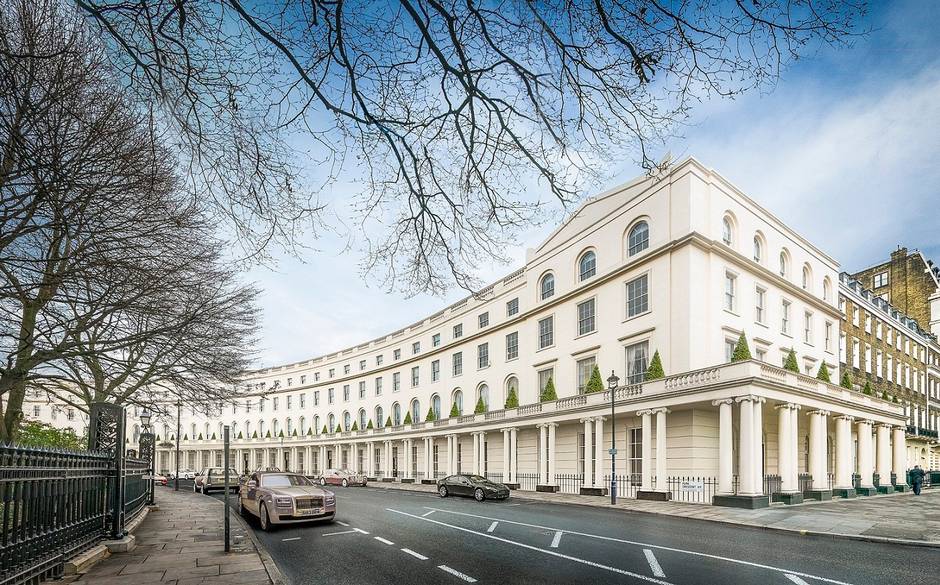 ore risk averse and raising building costs
ore risk averse and raising building costs
· Strong rental market due to buy-to-let property shortages particularly in London and southern England
· London likely to continue to boom with expanding population and inward migration despite the Brexit doom-mongers
· Booming UK population, birth rate and immigration with subdued emigration
· Pent up demand from years of low market activity 2008-2012 people needing to move
· Continuing flood of wealthy global citizens escaping economic problems in 2017 - this is likely to be from Germany/France (tensions with Russia, terrorism, election outcome), Syria (war), mainland Europe (escaping poor jobs prospects), France and China (fear of government asset seizures, hedging)
· Elizabeth Line (Crossrail 1) to open in London 2017-2019 possible Crossrail 2
Negative Criteria for Property Prices in 2017
· Slightly less competitive and less abundant mortgages with possible interest rates rises required to defend the weakened Sterling
· Global economic slowdown and slightly reduced trade with Europe
· High levels of debt spending in western countries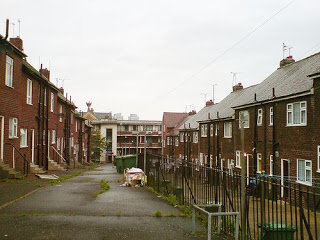
· Ramifications of the punitive taxation of buy-to-let - driving rents higher and making it far more difficult for renters to get deposits to become owner occupiers
· Currency fluctuations and confidence post Brexit Referendum affecting the property market
· Continued public sector jobs losses particularly in areas exposed to these jobs - such as rural areas and northern/western areas in Britain
· High levels of deposits required even with "help-to-buy" measures increases in deposits for buy-to-let are likely after the draconian new buy-to-let tax measures announced 2015-2016
· Difficulty getting mortgages for the average person even with "help-to-buy" measures
· Low lending to salary multiples offered by banks
· The threat of terrorism particularly in Greater London
· Lower oil prices effecting Aberdeen and NE Scotland property market
Overall, we believe the positive factor more or less cancel out the negative factors and as the UK economy continues to grow, stability from the Tory majority government and massively booming population with little building will lead to more house price increases despite Brexit except in Central London. The ripple effect will continue to fan out from London moving through places like Leicester/Derby, Birmingham, Manchester, Leeds. The largest house price increase are likely to be in areas 75-125 miles from London, with housing shortages in East England driving prices up. Large increases in house prices are expected in Londons lower priced suburbs like Ilford, Dagenham, Milton Keynes, Hatfield and Essex and eastern Kent - catching up with the rest of London. Some areas like Acton, Abbey Wood, Forest Gate, Ealing and Paddington will benefit from the opening of the Elizabeth Line (Crossrail 1).
2017 Predictions
Property Price Predictions
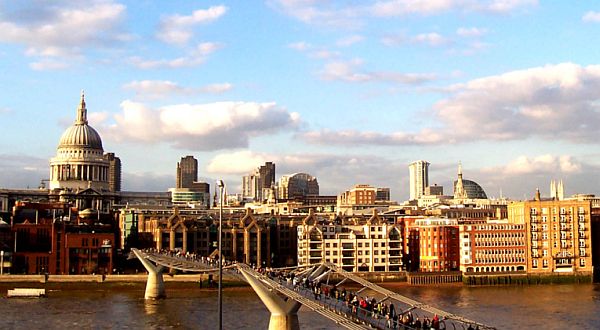
1. London +1% (West London -1%)
2. SE England +3%
3. East Anglia +2%
4. Scotland -1%
5. SW England +3%
6. NW England +2%
7. Midlands +2% (East Midlands +3%)
8. Wales +1%
9. North England +1%
10. Northern Ireland -1%
11. Yorkshire +1%
Note: Published CPI and RPI inflation will be ~2.2% (though real inflation will be more like 2.8%).
Rents
These will rise above house price inflation as buy-to-let tax increases and stamp duty on buy-to-let property will lead to far lower investment in private rental property, and higher costs for landlords - hence driving rents up as all these measures worsen the housing crisis and tighten further the rental supply.
Other criteria
· US Dollar to the UK $1.7 / £1 Dollar increases slightly against Sterling 
· UK £ to the Euro £1 / 0.88 Euro Euro-Sterling track fairly closely in 2016
· Oil price start the year at $52bbl, rising to $63/bbl by end 2017
· UK Gas remains firm at price 43p/therm
· UK Interest Rates one interest rate increase of 0.25% forecast for 2017 though there could also be more currency printing despite a slight increase in interest rates
· FTSE100 index stays around 7000, same as 2016
· UK Inflation CPI starts year rising from 1.1% to 2.8% by end 2017 largely due to increases in oil price and Sterling value erosion (more expensive imports)
· UK GDP stays around 2.0% - continuing the existing trend driven by population increases
· Ongoing security situation continued to be grave in NW Iraq and eastern Sy ria though improving towards end 2017 as Russian and other forces erode ISIS control over the desert territory Assad remains in power supported by Putin. Tensions between Saudi Arabia and Iran continue. SE Ukraine continues to quieten down, Yemen problems continue. Possible advance-tensions in eastern Estonia (Russian border). US support for Israel increases - worsening the tensions in Levant. US reverses course on Iranian sanction - amid concerns on their nuclear ambitions. North Korea and US confront each other over North Korea's nuclear ambitions. Hotspots being US-North Korea, US-China (South China Sea), US-Iran, Israel-Palestine, Russia-US-Syria-Turkey.
ria though improving towards end 2017 as Russian and other forces erode ISIS control over the desert territory Assad remains in power supported by Putin. Tensions between Saudi Arabia and Iran continue. SE Ukraine continues to quieten down, Yemen problems continue. Possible advance-tensions in eastern Estonia (Russian border). US support for Israel increases - worsening the tensions in Levant. US reverses course on Iranian sanction - amid concerns on their nuclear ambitions. North Korea and US confront each other over North Korea's nuclear ambitions. Hotspots being US-North Korea, US-China (South China Sea), US-Iran, Israel-Palestine, Russia-US-Syria-Turkey.
· Euro interest rates staying at record lows throughout 2017 (deflation threat, leading to continued bond purchases)
· US Interest rates stay the same through 2017 (after rising slightly Dec 2016) - with possible QE4 if US economy slows down
· UK unemployment stays around 5.5%
· Wage inflation ~2.2% throughout 2017 in both private and public sectors
· GDP growth London 3.2%, North 1.0%, Midlands 1.7%, Scotland 0.2%. Wales 0.5% (overall 2.0% for 2017)
· GDP China 5%, GDP India 6.5%, GDP Africa 2%, Global GDP 2.2%, UK 2.0%, USA 3.1%, Euroland 1.3% - as a whole over 2017
· Gold stays around $1250/ounce level, silver stays at $16/ounce level 
USA debt situation - Low oil prices albeit rising and higher GDP growth improve US finances over 2016 even though debt levels remain very high and increasing. Dollar value remains well supported by higher growth and newly found shale-oil that is economic at prices above $50/bbl. Trump starts spending spree on infra-structure and military. Trump reduces taxes for the top wealth 35% that boosts the US economy and spending.
Inflation Increases due to higher oil prices in the UK this will mean interest rates may rise particularly if Sterling declines to levels deemed very inflationary (e.g. £1 = $1).
Greece, Portugal, Ireland, Spain and Italy finances continue to improve slowly albeit the pace weakens as oil prices rise increasing oil import costs. German economy is hit by confidence prior to the German elections and tensions with Russia and possible Euro zone break-up referendum in other countries.
Russia: The sanctions, low oil prices and financial stresses lead to recession and more pressure on President Putin who expands military efforts to boost/maintain popularity at home. Eastern Estonia could be another target for subversive or outright territorial invasion. Ukraine rumbling away at low level, with real focus being on Syria/NE Iraq for 2017.
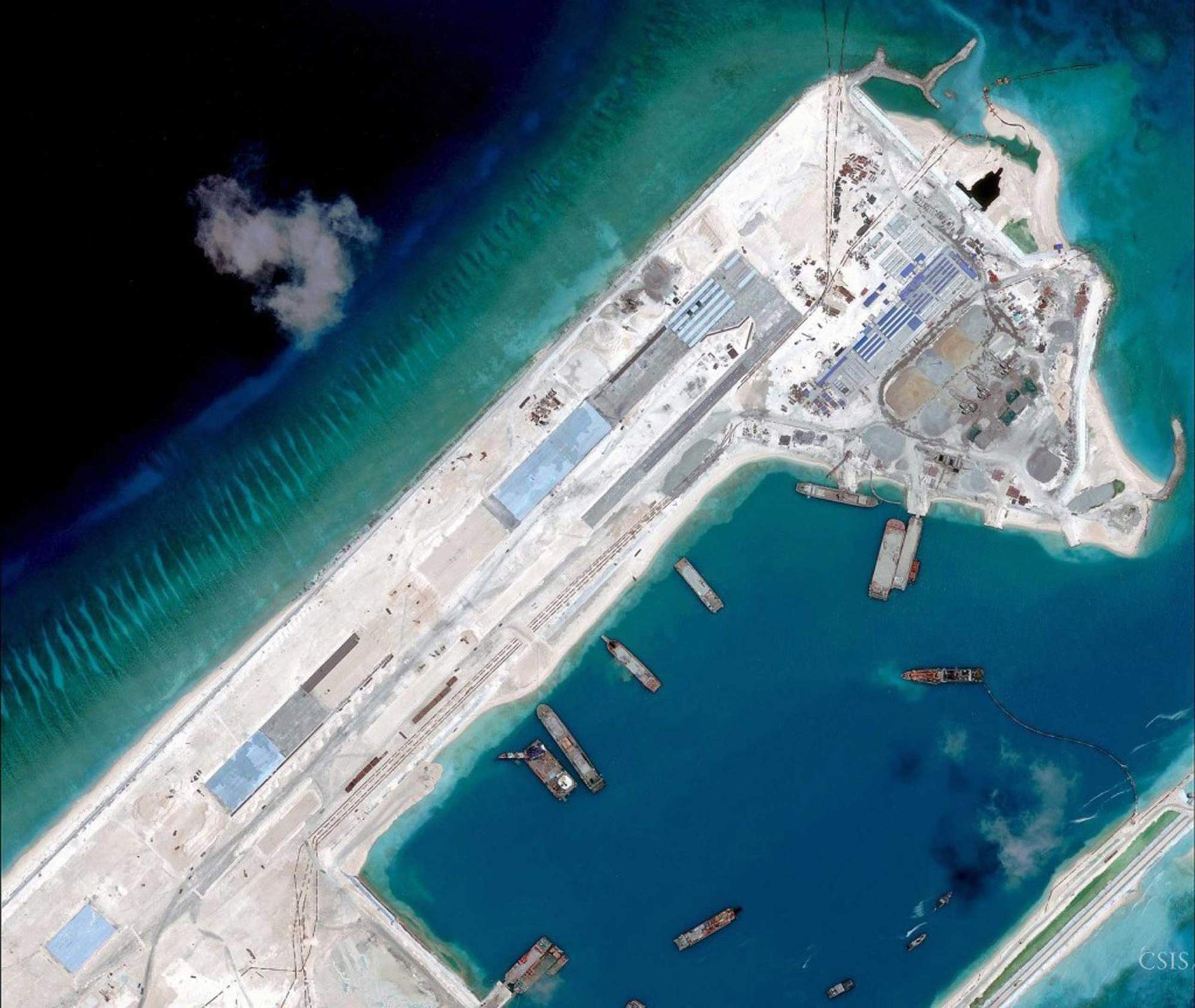 Middle East: House of Saud finances improve slightly as oil prices rise from $52/bbl to $60/bbl though budget does not balance until oil prices are around $90/bbl. Continued tensions with Iran and ISIS insurgency in the region. Middle East and North Africa continue to be unstable with bad situations continuing in Libya and Yemen.
Middle East: House of Saud finances improve slightly as oil prices rise from $52/bbl to $60/bbl though budget does not balance until oil prices are around $90/bbl. Continued tensions with Iran and ISIS insurgency in the region. Middle East and North Africa continue to be unstable with bad situations continuing in Libya and Yemen.
BRIC: Brazil economy starts slow improvement as oil and commodity prices rise (Petrobras escapes default for now) 3% GDP growth. Indian economy continues to boom off the back of global trade with western nations and gigantic population explosion 6% GDP growth.
China South China Sea: Further military spats and escalations continue over disputed islands this time with USA at the forefront high risk of some sort of naval war between USA (Trump) and China over the islands.
Large bankruptcy: Bankruptcy or default in a number of European banks in Italy, and possibly German, France and Spain.
The Trump Effect: Donald Trump will become more and more u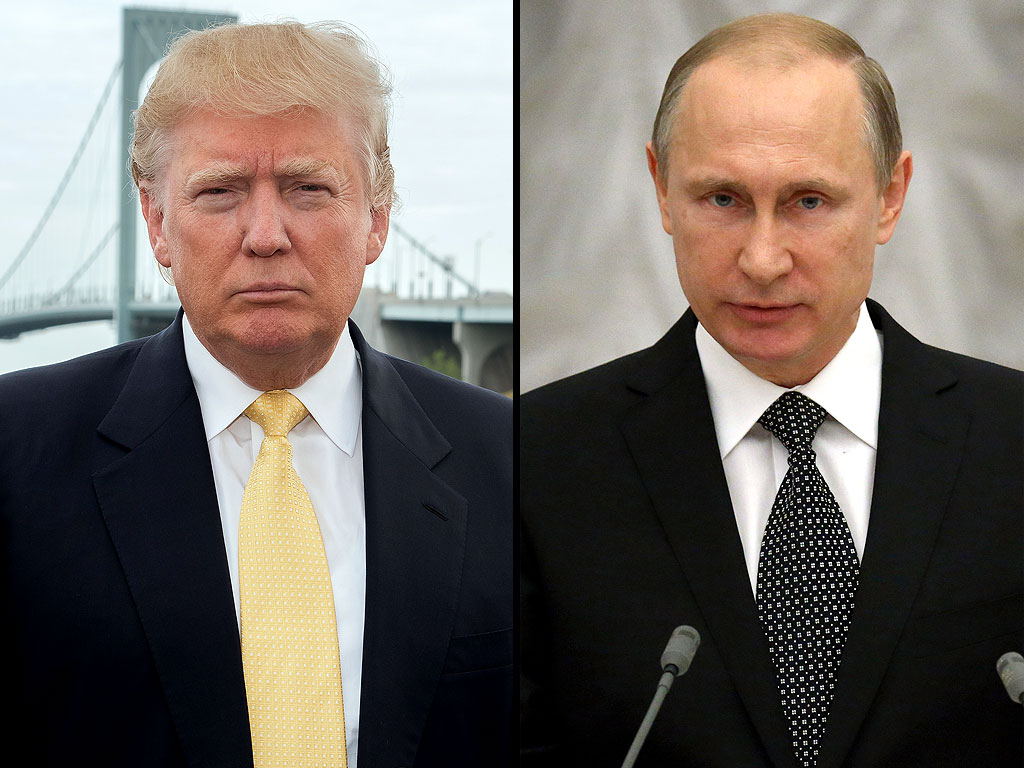 npredictable. The USA's relationship with China and Venezuela in particularly will deteriorate. Initially his relationship with Russia will seem satisfactory but then this will also deteriorate by end 2017. It will be Presidential running of the US via Twitter - soundbites and often dangerous rhetoric. This will send gold and oil prices rising. A nuclear arms race will start in 2017 with big increases in military spending in USA, China and Russia. Putin and Trump and their egos will spar with each other more regularly towards the end of 2017. Global casualties of Trump's policies are likely to be China and Venezuela, also Iran and possibly Cuba, North Korea and other socialist countries. Trump's policies will inflame tensions in Israel and with the Palestinians. The Middle East is likely to feel threatened by Trump and his cohorts and policies.
npredictable. The USA's relationship with China and Venezuela in particularly will deteriorate. Initially his relationship with Russia will seem satisfactory but then this will also deteriorate by end 2017. It will be Presidential running of the US via Twitter - soundbites and often dangerous rhetoric. This will send gold and oil prices rising. A nuclear arms race will start in 2017 with big increases in military spending in USA, China and Russia. Putin and Trump and their egos will spar with each other more regularly towards the end of 2017. Global casualties of Trump's policies are likely to be China and Venezuela, also Iran and possibly Cuba, North Korea and other socialist countries. Trump's policies will inflame tensions in Israel and with the Palestinians. The Middle East is likely to feel threatened by Trump and his cohorts and policies.
Note: Just like last years prediction, sometime in the next 6 months to 4 years we expect a real economic-financial crisis in western developed nations caused by the US bond market meltdown. At this time, gold and silver prices will go ballistic (silver from $16/oz to $400/oz and gold from $1240/ounce to about $6400/ounce). The Dow Jones may rise, but inflation adjusted real terms will decline still in an overall cyclical bear market.
UK Politics
Brexit negotiations to dominate the news with disarray and huge arguments on what Brexit means, whether we should allow free movement of capital and people and whether the UK should remain in the Customs Union or not more and more likely to be a hard Brexit an acrimonious divorce. Terresa May will be pulled left, right and centre and will look more and more foolish in the world's eyes through 2017 with possible resignations and replacement by Boris Johnson if pressure becomes too unbearable for her. SNP will keep threatening another Referendum, but this would not be worthwhile unless they saw oil prices higher than $100/bbl this might embolden them. Meanwhile Labour will continue to shrivel and die as a pollical force as their policies are in disarray and Jeremy Corbyn's leadership results in the Labour party transforming into a protest party rather than a real opposition party. The Tories may have s snap election in 2017 - a 40% chance - particularly if they feel they need a mandate for a hard Brexit. In any case they can look forward to another 4 year term to 2020 with the outlook for the Tories very good moving into the 2020s mainly because few people trust Labour with the economy, particularly with Corbyn as leader and the Brown legacy of financial mismanagement.
__________________________________
Property Price Predictions
1. London +4% (West London +2%) Actual -0.1 % (West London -2%) Brexit impacted
2. SE England +6.5% Actual 4.5%
3. East Anglia +8% Actual 6.4%
4. Scotland +0% Actual 0.0%
5. SW England +6% Actual 6.6%
6. NW England +4% Actual 2.7%
7. Midlands +6% Actual 5.0%
8. Wales +4% Actual 4.1%
9. North England +3% Actual 0.1%
10. Northern Ireland +6% Actual 0.5%
11. Yorkshire +3% Actual 1.8%
Note: Published CPI and RPI inflation will be ~0.5% (though real inflation will be more like 1.5%). Spot on actual CPI inflation was 0.5%
Rents
These will rise rapidly above house price inflation as buy-to-let tax increases, stamp duty on buy-to-let property and lead to far lower investment in private rental property, and costs for landlords - hence driving rents up as these measures worsen the housing crisis. Correct rents rose ~3%.
Other criteria
· US Dollar to the UK $1.47 / £1 Dollar increases slightly against Sterling - Incorrect
· UK £ to the Euro £1 / 0.73 Euro Euro-Sterling track fairly closely in 2016 Sterling lost 10% of its value due to Brexit
· Oil price starts year at $37bbl, rising to $50/bbl by end 2016 Oil prices dropped to $29/bbl in Jan 2016 then rose to 52$/bbl by end 2016 correct.
· UK Gas price 38p/therm Gas prices recovered to 40p/them by end 2016 - correct
· UK Interest Rates staying at 0.5% throughout year - equally likely to print money as increase interest rates Correct spot on
· FTSE100 index stays in range 6000-6300 FTSE100 rose to 7000 mainly due to Brexit currency value reduction
· UK Inflation CPI starts year at 0% then rises to 0.5% by end 2016 - correct
· UK GDP staying around 2.5% - continuing existing trend Correct (despite Brexit, still growing at 2% per annum by end 2016)
· Ongoing security situation stays grave in NE Iraq and eastern Syria with US/French/UK/Russian and Middle Eastern coalition forces weakening ISIS. Tensions between Saudi Arabia and Iran. SE Ukraine continues to quieten down, Yemen problems continue. Possible advance into eastern Estonia. All Correct.
· Euro interest rates staying at record lows throughout 2015 (deflation threat, leading to continued bond purchases) - Correct
· US Interest rates stay the same after rise mid Dec 2015 possible QE4 if US economy slows down Almost correct, only rose a meagre 0.25% in Dec 2016
· UK unemployment stays around 5.5% - Correct
· Wage inflation ~2.6% throughout 2015 in both private and public sectors - Correct
· GDP growth London 4.5%, North 1.5%, Midlands 2.1%, Scotland 0%. Wales 1.5% (overall 2.4% for 2015) - Correct
· GDP China 4%, GDP India 5.5%, GDP Africa 1%, Global GDP 2%, UK 2.5%, USA 2.2%, Euroland 1% - as a whole over 2016 - Correct
· Gold stays around $1090/ounce level, silver stays at $14/ounce level rose to $1130/ounce by year end (silver $15.80/ounce)
USA debt situation - lower oil prices and higher GDP growth improve US finances over 2016 even though debt levels remain very high. Dollar value remains well supported by higher growth and newly found shale-oil that is economic at prices above $50/bbl. Correct
Inflation very subdued because of crash in oil prices in the UK this will mean interest rates do not need to rise as soon as they would otherwise. Correct.
Greece, Portugal, Ireland, Spain and Italy finances continue to improve getting a boost from low oil prices and reduced oil import costs. German economy is hit by lower trade with Russia, though lower oil prices feeding through to lower inflation leads to financial services performing better than expected. Broadly correct.
Russia: The sanctions, low oil prices and financial stresses lead to recession and more pressure on President Putin who expands military efforts to boost/maintain popularity at home. Eastern Estonia could be another target for subversive or outright territorial invasion. Ukraine rumbling away at low level, with real focus being on Syria/NE Iraq for 2016. Absolutely Correct.
Middle East: House of Saud under huge pressure from low oil prices, tensions with Iran and ISIS insurgency in the region. Middle East and North Africa becomes more unstable with worsening situation in Libya, Yemen and Saudi. Correct Saudi capitulated in Nov and agreed to cut oil production to raise oil prices.
BRIC: Brazil economy continues to suffers from high debt at Petrobras (possible Petrobras default) 2% GDP growth only. Indian economy booms off the back of lower oil prices and global trade with western nations 6% GDP growth. Correct.
China South China Sea: Military spats continue over disputed islands all the time risking escalation to war (China-Japan-US navy). Correct.
Large bankruptcy: Possible bankruptcy or default of Petrobras and Rosneft suffering from ~$36/bbl oil prices and massive debts. Both respective government are unable to bail them out. Indeed, Brazil pressure mounted and political turmoil with indictments in Petronas and government over correction allegations
Note: Just like last years prediction, sometime in the next 6 months to 5 years we expect a real economic-financial crisis in western developed nations caused by the US bond market meltdown. At this time, gold and silver prices will go ballistic (silver from $14/oz to $400/oz and gold from $1080/oz to about $6400/oz. The Dow Jones may rise, but inflation adjusted real terms will decline still in an overall cyclical bear market. No crisis just yet was not really predicted in 2016.
UK Politics
The EU Referendum will take place mid 2016 it will be a very close run result and its too uncertain to call 50/50 either way. Correct voted for Brexit 52% to 48% despite media hype saying 85% chance of Remain winning.
If the UK leaves the EU, then the SNP will demand another Referendum then they would leave the UK by end 2017. If the UK stays in the EU, SNP are likely to continue within the Union. The Tories will campaign on keeping within the EU and keeping the Union together. They only have 50% chance of success. Meanwhile Labour will continue to implode - with Jeremy Corbyn's leadership resulting in the Labour party transforming into a protest party rather than a real opposition. With SNP assent and Labour demise, regardless of a Scottish Referendum, Tories line up for another 5 year term in 2020. All correct.
The economic scenario most likely to be beneficial is staying within the EU - though this is also uncertain and would depend on whether the Tory government reacted by implementing business friendly policies post Brexit that would entice large foreign investment flows from around the world to offset less EU trade. Thought to be correct at this time - time will tell.
We hope this Special Report helps with your property investment strategy and tactics. If you have any queries, please contact us on enquiries@propertyinvesting.net

